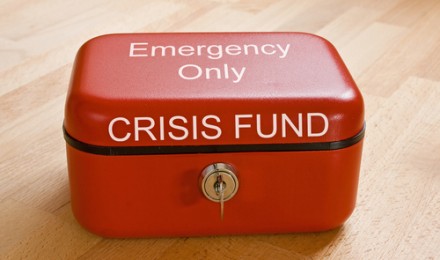The difference between a bank and a credit union is simple: a bank operates for profit and a credit union is a not-for-profit institution.
When you deposit money in a bank, you are actually “loaning” the money to the bank. Banks lend that money to other customers and invest it, which is how they make their money, along with the other miscellaneous overdraft, late payment and ATM fees. When you make a deposit at a credit union, you’re actually buying shares of the company as a part owner of the credit union rather than as a customer. Credit union members make the decisions and the executives and directors are elected by vote. There is no corporate interest controlling the credit union’s management.
Banks frequently offer a wider range of conveniences: more branches, more ATM’s and a wider array of financial products. They are also more likely to invest the funds to offer better technological advances like on-line banking. In addition, if you are a businessperson who needs loans approved frequently, having a banker that you enjoy a good relationship with can be a necessity. Some banks are better equipped to handle lines of credit, financing for business ventures and equipment loans. Banks may also have more investment and retirement programs not available through a credit union. Bank customers ultimately pay for these services through a combination of lower interest rates for on savings, higher interest rate for loans; higher penalties for overdrafts and late payments as well as fees for basic account services.
Since membership in a credit union is usually requires a specific affiliation (often through an employer or industry group), credit unions do not have the high marketing costs that banks do. In addition, credit unions are exempt from most state and federal taxes and do not tend to have as many high salaried executives. Through its lower cost structure, a credit union offers competitive rates on loans and savings, lower fees and other advantages. Any revenues beyond this are distributed to the members through dividends at the end of the year.
Just like banks, deposit accounts are insured for up to $250,000 making your money as safe as it is with a bank.
However, it can be more expensive to get money from a credit union without visiting a branch. Credit unions usually have fewer branches and ATMs than banks. Using another financial institution’s ATMs while traveling or even around town can mean ATM transaction fees. However, some credit unions will even refund ATM transaction fees. For these reasons, look carefully at your options when choosing a bank or credit union to make sure it fits your needs. You could, for example, keep your savings fund and long-term savings in a credit union, while still using a bank for your day-to-day checking and cash needs. In addition, if there are services that only a bank can provide, choose an institution where you can get the best deal. It really does not have to be an either/or proposition.
The difference between a bank and a credit union is simple: a bank operates for profit and a credit union is a not-for-profit institution.
When you deposit money in a bank, you are actually “loaning” the money to the bank. Banks lend that money to other customers and invest it, which is how they make their money, along with the other miscellaneous overdraft, late payment and ATM fees. When you make a deposit at a credit union, you’re actually buying shares of the company as a part owner of the credit union rather than as a customer. Credit union members make the decisions and the executives and directors are elected by vote. There is no corporate interest controlling the credit union’s management.
Banks frequently offer a wider range of conveniences: more branches, more ATM’s and a wider array of financial products. They are also more likely to invest the funds to offer better technological advances like on-line banking. In addition, if you are a businessperson who needs loans approved frequently, having a banker that you enjoy a good relationship with can be a necessity. Some banks are better equipped to handle lines of credit, financing for business ventures and equipment loans. Banks may also have more investment and retirement programs not available through a credit union. Bank customers ultimately pay for these services through a combination of lower interest rates for on savings, higher interest rate for loans; higher penalties for overdrafts and late payments as well as fees for basic account services.
Since membership in a credit union is usually requires a specific affiliation (often through an employer or industry group), credit unions do not have the high marketing costs that banks do. In addition, credit unions are exempt from most state and federal taxes and do not tend to have as many high salaried executives. Through its lower cost structure, a credit union offers competitive rates on loans and savings, lower fees and other advantages. Any revenues beyond this are distributed to the members through dividends at the end of the year.
Just like banks, deposit accounts are insured for up to $250,000 making your money as safe as it is with a bank.
However, it can be more expensive to get money from a credit union without visiting a branch. Credit unions usually have fewer branches and ATMs than banks. Using another financial institution’s ATMs while traveling or even around town can mean ATM transaction fees. However, some credit unions will even refund ATM transaction fees. For these reasons, look carefully at your options when choosing a bank or credit union to make sure it fits your needs. You could, for example, keep your savings fund and long-term savings in a credit union, while still using a bank for your day-to-day checking and cash needs. In addition, if there are services that only a bank can provide, choose an institution where you can get the best deal. It really does not have to be an either/or proposition.







